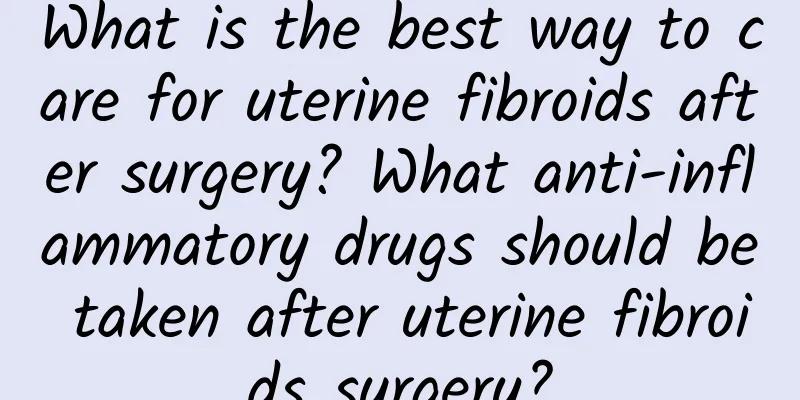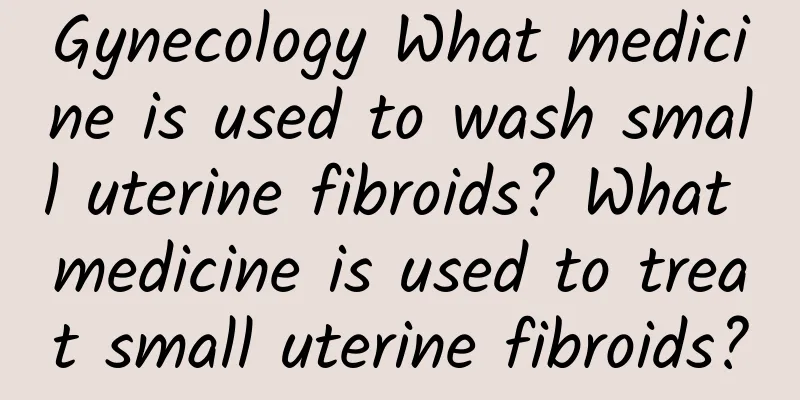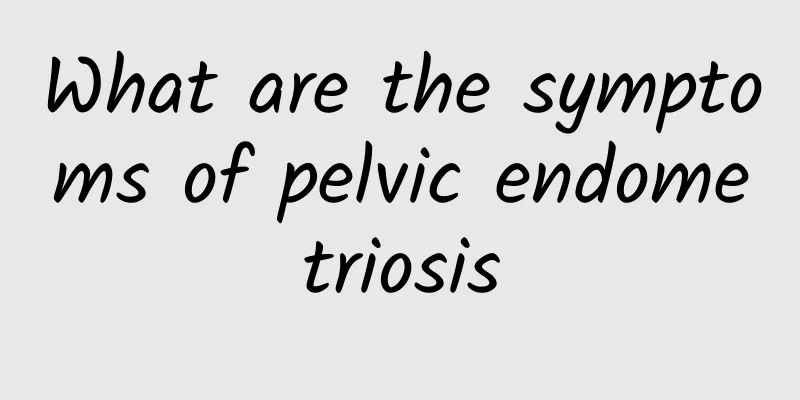What is the best way to care for uterine fibroids after surgery? What anti-inflammatory drugs should be taken after uterine fibroids surgery?

|
What is the best way to care for uterine fibroids after surgery? What anti-inflammatory drugs should be taken after uterine fibroids surgery? Uterine fibroids are a common benign tumor in women, which has a certain impact on women's physical health. After uterine fibroid surgery, proper diet and anti-inflammatory drugs are the key to recovery. This article will introduce you to what you should eat during postoperative care for uterine fibroids and related knowledge about anti-inflammatory drugs. 1. Overview of postoperative diet After uterine fibroid surgery, women need to pay attention to diet to promote wound healing and restore health. After surgery, they should eat light food and avoid greasy, spicy and irritating food. In addition, they need to supplement nutrients such as vitamins, proteins and minerals to strengthen the body's resistance. 2. Postoperative Diet Recommendations 1. Warm food: Women are weak after surgery, so they should choose easily digestible warm food, such as cooked grains, vegetables and meat. At the same time, they can take a moderate amount of warm soup to improve the body's nutrient absorption. 2. High-fiber foods: Women are prone to constipation after surgery, so they should eat more high-fiber foods, such as fruits, vegetables, and whole-wheat foods. These foods help promote intestinal peristalsis and prevent constipation. 3. Protein-rich foods: Protein is an important nutrient for the body's repair and recovery. You need to take in a moderate amount of protein after surgery to promote wound healing. You can choose protein-rich foods such as eggs, fish, and tofu. 3. Postoperative anti-inflammatory drugs After uterine fibroid surgery, doctors usually prescribe some anti-inflammatory drugs to prevent infection and relieve inflammation symptoms. However, the specific anti-inflammatory drugs to be used need to be selected and used according to the doctor's advice. 1. Antibiotics: Antibiotics are common anti-inflammatory drugs that can be used to prevent and treat bacterial infections that may occur after surgery. They should be used in a standardized and scientific manner according to the doctor's advice to avoid abuse and improper use. 2. Anti-inflammatory drugs: Nonsteroidal anti-inflammatory drugs are a common class of anti-inflammatory drugs that can help relieve inflammation symptoms after surgery. However, for patients with gastrointestinal problems, they should be used with caution to avoid adverse reactions. 3. Traditional Chinese medicine anti-inflammatory drugs: Traditional Chinese medicine is natural and mild, and is also widely used in the anti-inflammatory process after uterine fibroid surgery. You can choose some traditional Chinese medicine preparations, such as berberine, forsythia, etc., to assist in the anti-inflammatory effect. Conclusion: Postoperative care for uterine fibroids is very important. The correct diet and the use of anti-inflammatory drugs will play a positive role in the patient's recovery. In terms of postoperative diet, light, warm, high-fiber and protein-rich foods should be the main focus; in terms of the use of anti-inflammatory drugs, they should be selected and used according to the doctor's advice to avoid abuse and improper use. Through scientific care and good eating habits, patients can recover faster. |
Recommend
Irregular menstruation, how to calculate ovulation period
In order to prepare for pregnancy, many women wil...
The main symptoms of uterine fibroids are as follows
Uterine fibroids are a gynecological disease that...
What medicine can cure small uterine fibroids? Take these 3 medicines now
What medicine should be taken for uterine fibroid...
What fruits and vegetables should I eat for pelvic inflammatory disease?
If you have symptoms of pelvic inflammatory disea...
Is it easy to cure second-degree cervical erosion? Four treatments are required for second-degree cervical erosion
Many women have misunderstandings about cervical ...
Does drinking Pu'er tea help you lose fat and lose weight? 3 health tips from a female Chinese medicine practitioner...
Do you like Pu'er tea? A domestic research te...
What to eat to nourish your body after medical abortion? Here are 6 foods
After the abortion, you can eat oranges and apple...
How to treat cervical warts in female patients
Once cervical warts are diagnosed, do not delay f...
Recurrent bacterial vaginosis
Bacterial vaginosis is a common vaginal gynecolog...
What should women with endometrial thickening pay attention to?
The thickness of the endometrium generally change...
Cervical precancerous lesions recurred after four months of examination
What is the probability of recurrence of cervical...
What are the symptoms of premature ovarian failure?
What are the symptoms of premature ovarian failur...
Why do we need to do gestational sac test after miscarriage? What is the purpose of gestational sac test after miscarriage?
Many women want to have a healthy baby after they...
What are the side effects of laser therapy for cervical erosion?
What are the side effects of laser therapy for ce...
Treatment of pelvic inflammatory disease of damp-heat accumulation and cold-damp condensation type
Traditional Chinese medicine classifies pelvic in...









